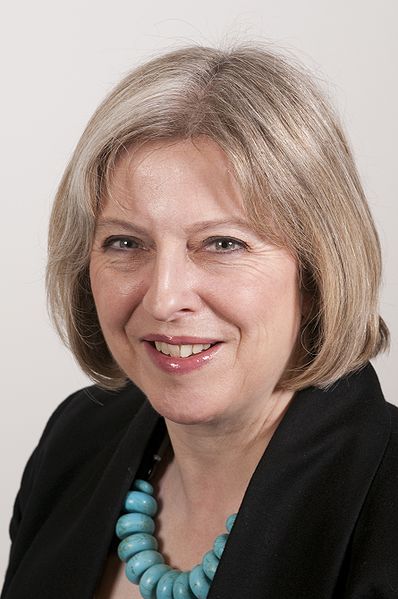UK's Top five Worst Anti-Online Privacy Politicians
Privacy & Security Posted on January 21, 2013

The UK is currently facing one of the biggest threats to its online freedoms. The looming Communications Capabilities Development Programme gives law enforcement unprecedented powers when it comes to accessing citizens’ online data. So we thought it might be fun to take a look back at which UK politicians have posed the biggest threat to online privacy and internet freedoms.
The UK is currently facing one of the biggest threats to its online freedoms. The looming Communications Capabilities Development Programme gives law enforcement unprecedented powers when it comes to accessing citizens’ online data. So we thought it might be fun to take a look back at which UK politicians have posed the biggest threat to online privacy and internet freedoms. If you’re from the US, check out our post on America’s political enemies of online privacy here. If you think we’ve missed someone out on this list please tell us in the comments below.
Peter Mandelson, Labour, former First Secretary of State

While the UK’s controversial Digital Economy Act sprung from research by Lord Carter, it was Secretary of State Peter Mandelson who was (allegedly) directly responsible for the more stringent copyright enforcement laws that got internet rights activists up in arms, especially the provision that required ISPs to cut off internet access for illegal file sharers. Mandelson was accused of caving into brazen lobbying attempts from the entertainment industry. According to The Independent, the Labour peer wasn’t that interested in the Digital Economy Act until he attended a dinner with DreamWorks co-founder David Geffen on the Greek island of Corfu. Mandelson returned from his trip and immediately issued an edict demanding tougher copyright provisions in the DEA. Of course, Mandelson denied the events were linked, but he’s got form with this sort of thing.
David Blunkett, Labour, former Home Secretary

David Blunkett wasn’t Home Secretary when the Regulatory Investigative Powers Act was introduced into the House of Commons in 2000, but he was responsible for the expanding the list of organisations that could access internet data collected by ISPs. Blunkett’s initial attempt to expand the list of authorities met strong opposition and he was forced to heavily water it down. Nevertheless, as of 2009, there were 50,000 requests per year to access citizens’ email and phone data (the government no longer makes the figures public). You can see the a list of some of the organisations that can access data right here. Blunkett was also responsible for forcing ISPs to retain data on customers (email logs, web logs, names and addresses) for up 12 months after they leave the service. This was before the EU mandated data retention policy (and probably significantly helped the EU’s policy on its way).
Lord Bassam, Labour peer
Lord Bassam is not exactly a household name, but he did play a big role in cheerleading RIPA through the House of Lords. Bassam strongly defended RIPA against questioning from Lord Philips, one of the bill’s few detractors. Many believe that RIPA was not fully understood by either the House of Commons or House of Lords when it was introduced, in that respect Bassam has a lot to answer for.
Theresa May, Conservative, current Home Secretary

Despite The Conservatives saying they would do more to defend civil liberties during Labour’s tenure, it didn’t take long for them to launch probably the worst online surveillance bill ever proposed. As Home Secretary, Theresa May has spearheaded the implementation of the Communications Capabilities Development Programme. While May’s record may not be quite as bad as Blunkett’s, she has been utterly brazen in spewing populist rhetoric designed to cut down opposition to the CCDP. May says that if you oppose her bill than “you are siding with peadophiles and terrorists.” Such hysterics should not be part of any rational policy debate, especially when it concerns such an important bill.
Claire Perry, Conservative, advisor on childhood

MP Claire Perry is currently the Conservative ‘advisor on childhood’ and has campaigned strongly for the last two years against online pornography. Perry may not have the track record of other MP’s on this list, but she’s one to watch. Her activism came to a head late last year when the government considered taking a leaf out of China’s book and almost implemented a nationwide internet firewall, which would block anything deemed to be “pornographic”. The only way to escape the porn filter would’ve been to opt out with your ISP. Thankfully, due to heavy campaigning explaining the ineffectiveness of such a filter and the implications it would have in terms of online censorship, the government dropped Perry’s plans.
Suggest an edit on GitHub.

